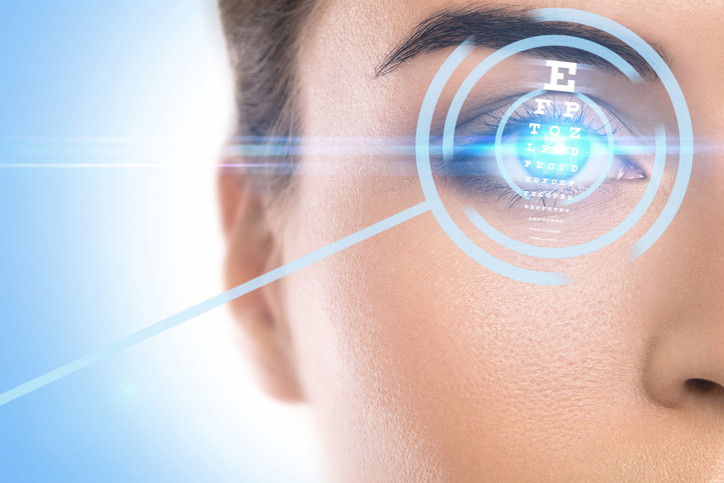
Counting steps is good — is combining steps and heart rate better?

Appendix pain: Could it be appendicitis?

Can saw palmetto treat an enlarged prostate?

How does Ozempic work? Understanding GLP-1s for diabetes, weight loss, and beyond

Zinc: What it does for the body, and the best food sources

Respiratory health harms often follow flooding: Taking these steps can help

Tips to leverage neuroplasticity to maintain cognitive fitness as you age

Can white noise really help you sleep better?

Celiac disease: Exploring four myths

What is prostatitis and how is it treated?
Harvard Health Blog
Read posts from experts at Harvard Health Publishing covering a variety of health topics and perspectives on medical news.
Articles
Helping people with autism spectrum disorder manage masks and COVID-19 tests
The COVID-19 pandemic has presented many new challenges for people with autism spectrum disorder. Adapting to wearing face masks and the experience of a COVID-19 test are particularly challenging, but there are strategies that can help these individuals meet the challenges.
Study gives insight — and advice — on picky eating in children
Are statins enough? When to consider PCSK9 inhibitors
Statins have been used to treat high cholesterol for decades, but some people who take statins still have LDL cholesterol levels that are too high. A different type of medication, PCSK9 inhibitors, were approved several years ago and are showing effectiveness in lowering LDL in such people.
How to socialize in a pandemic
Some social distancing will be needed for many more months, or even years, to keep the coronavirus at bay. But abstaining from all social contact for the long haul won’t be a sustainable option for most people. So, how can we make decisions about socializing safely?
The doctor will “see” you now: Teledermatology in the era of COVID-19
Doctors are increasingly turning to telemedicine as a way to safely treat patients during the COVID-19 crisis. Dermatology is well-suited for telemedicine, though there are limitations due to the limits of technology, and certain conditions that must be seen and treated in person.
Easing stress and seeking normalcy in traumatic times
Traumatic events, whether global or in a person’s own life, can take a toll on mental health. How can you reduce your stress and regain your emotional composure after going through a difficult time?
5 winning ways for kids to burn energy
After a couple of months of sheltering in place, and with warm weather upon us, your children probably have plenty of excess energy. Here are five suggestions for activities that will get them moving — and there’s nothing stopping parents from joining in.
Bracing for contact tracing
Can forest therapy enhance health and well-being?
When you were a child and your mother told you to go play outside, it wasn’t just because she needed some child-free time. Inspired by a Japanese practice, forest therapy is an immersion in nature that has been shown to have positive effects on health.
Can celiac disease affect life expectancy?
Previously thought to affect mainly children, celiac disease is now understood to be a systemic disorder that can develop at any age. A recent study found a small but significant risk of increased mortality in those with CD, but managing the condition through proper diet and medical care can mitigate the risk.
Collaborative care: Treating mental illnesses in primary care
Collaborative care is a team-based model of integrated psychiatric and primary care that can treat mental illnesses in the primary care setting. Providing this patient-centered care in the primary care setting improves access to mental health care and reduces stigma.
Combining different biopsies limits uncertainty in prostate cancer diagnosis
Are prostate cancer biopsies reliably accurate? Not always. The most common method, called a systematic biopsy, sometimes misses tumors, and it can also misclassify cancer as being either more or less aggressive than it really is. During systematic biopsy, a doctor takes 12 evenly-spaced samples of the prostate, called cores, while looking at the gland […]
If cannabis becomes a problem: How to manage withdrawal
There is disagreement over whether or not there is such a thing as a cannabis withdrawal syndrome, but it's definitely real, and with increased availability of legal marijuana and other products, even those who use it medicinally need to be aware of the symptoms, and what to do if they think they have it.
When dieting doesn't work
Most diets can help you lose weight, but that weight is frequently regained within a few months — a fact supported by an analysis of more than 100 research trials on diets. But losing weight is easier, and more likely to be permanent, if you choose a diet with foods you actually like.
Reducing your risk of changes in thinking following surgery
As more older people undergo surgeries, the risk of complications increases, including for cognitive decline following their procedures, particularly after cardiac surgery. But awareness and pre-planning with your care team can help you avoid such complications.
Are there benefits of cardiac catheterization for stable coronary artery disease?
In patients with acute coronary syndrome, studies have shown that cardiac catheterization can decrease heart attacks and improve survival. A recent study attempted to determine if the procedure would have comparable results in people with a more stable form of coronary artery disease.
Some healthcare can safely wait (and some can’t)
Some routine or elective healthcare can safely wait a while, but putting off medical care for certain health conditions or potentially serious problems is risky.
How to respond to tantrums
I have inflammatory bowel disease (IBD). What should I eat?
For people with inflammatory bowel disease (IBD), knowing which foods to eat and which to avoid is important information. An international organization has developed guidelines for some kinds of food, with the aim of helping people with this condition reduce symptoms and inflammation.
And now for some good news on health
Good news on health –– which seems hard to come by right now –– includes declines in the rates of six out of 10 major causes of death in the United States.
SMall Incision Lenticule Extraction (SMILE): It’s what’s new in laser vision correction
Different types of laser vision correction procedures have been available since the mid-1990s, but the newest development, small incision lenticule extraction, combines the advantages of the other variations while offering a comfortable procedure with a quick recovery.
Multisystem inflammatory syndrome in children — what parents need to know
Why your sleep and wake cycles affect your mood
The body’s circadian rhythm controls our sleep-wake cycle, so an irregular rhythm can negatively affect sleep and proper functioning, which can lead to health problems including mood disorders. The tendency to rise early or stay up late is genetically determined, but you may be able to adjust your life to better match your circadian rhythm.
Do adults really need tetanus booster shots?

Counting steps is good — is combining steps and heart rate better?

Appendix pain: Could it be appendicitis?

Can saw palmetto treat an enlarged prostate?

How does Ozempic work? Understanding GLP-1s for diabetes, weight loss, and beyond

Zinc: What it does for the body, and the best food sources

Respiratory health harms often follow flooding: Taking these steps can help

Tips to leverage neuroplasticity to maintain cognitive fitness as you age

Can white noise really help you sleep better?

Celiac disease: Exploring four myths

What is prostatitis and how is it treated?
Free Healthbeat Signup
Get the latest in health news delivered to your inbox!
Sign Up
























